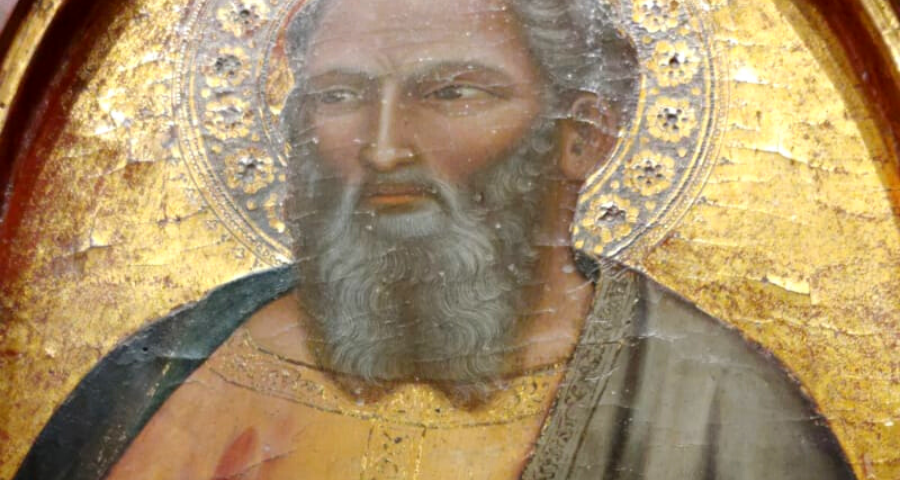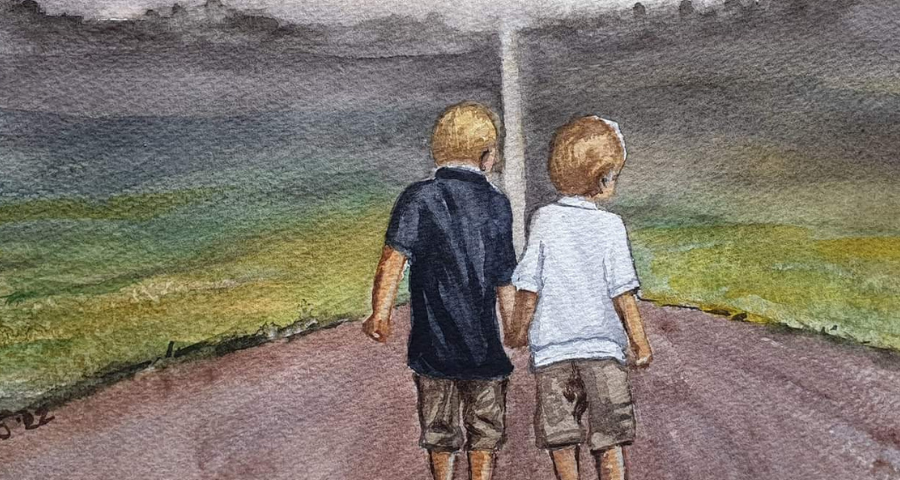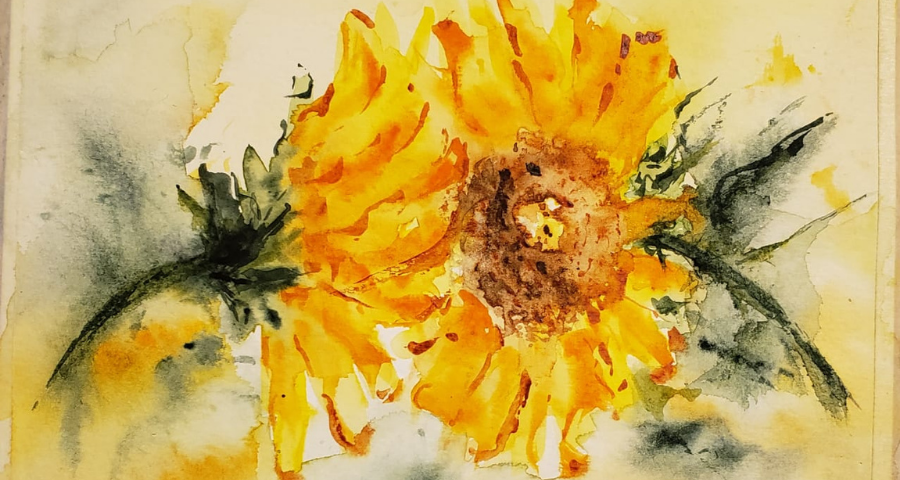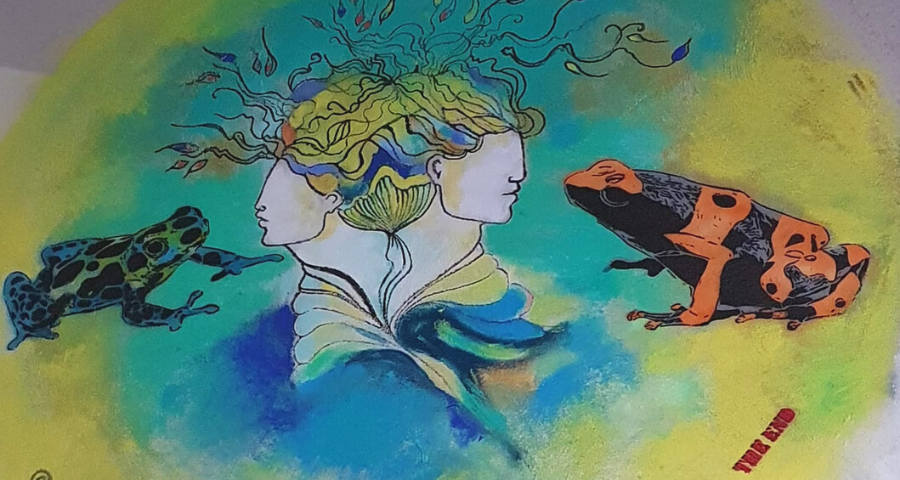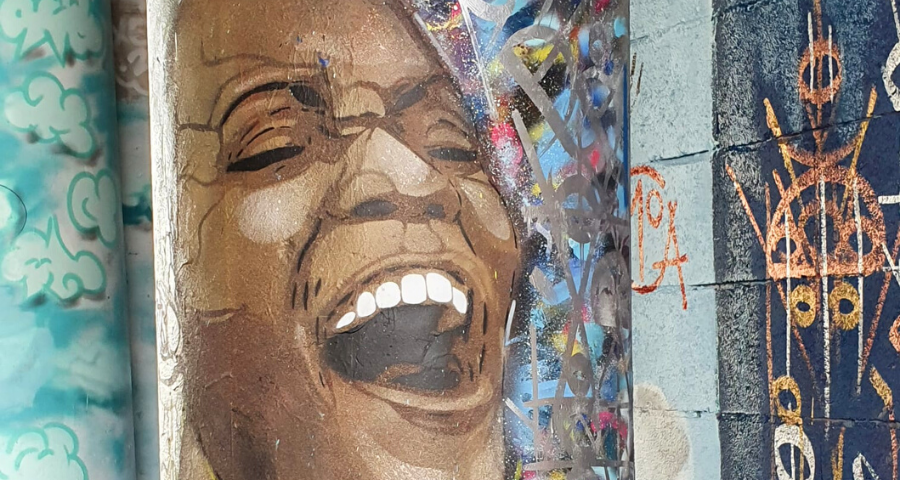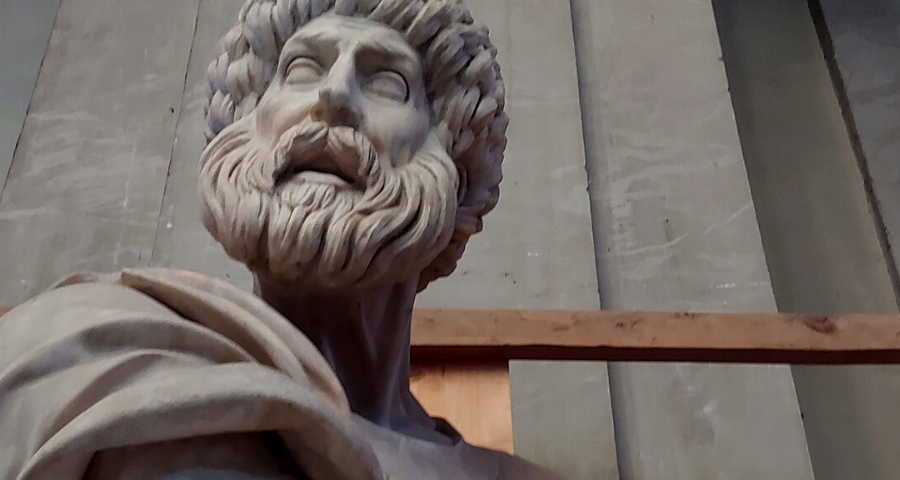The sign and the flesh/5 – The most dangerous enemy of religion is idolatry, not atheism
By Luigino Bruni
Published in Avvenire 02/01/2022
"Only with knowledge can we come to a real level of love. Only by experiencing the joy of discovering the unexpected appearance of a flower or the rapid fluttering of a bird's wings that we had not been able to see for some time will we understand what nature really is for us and how much our soul is reflected in its beauty. And how important it is to fight to preserve it from the destruction that we ourselves wreak."
Susanna Tamaro, Invisible wonder (Invisibile meraviglia)
Hosea describes one of the most serious and powerful religious diseases linked to the corruption of priests, of every cult and in every age.
In the Bible, the word hesed has many different meanings, all of which are related to some form of reciprocity. When hesed is denied, a relationship is broken, a pact is betrayed. In biblical humanism, the betrayal of the covenant with God by men also produced a cosmic disorder; it brought the world back to the chaos preceding the creative and ordering act. Human disobedience also generated the withering of the earth, the withering of plants, the suffering of birds, animals and fish. All that is alive suffers when go from being custodians to becoming devastators: «Hear the word of the Lord, you Israelites, because the Lord has a charge to bring against you who live in the land: “There is no faithfulness, no love, no acknowledgment of God in the land. There is only cursing, lying and murder, stealing and adultery; they break all bounds, and bloodshed follows bloodshed. Because of this the land dries up, and all who live in it waste away; the beasts of the field, the birds in the sky and the fish in the sea are swept away» (Hosea 4,1-3).
«Hear the word of the Lord» is something more than a formal invitation to listen to the assembly. It is a signal by which the prophets tell their hearers that they are about to utter words of a different kind. It is a harsh message, the words of a God questioning (rib) with his people. We find ourselves in a courtroom plea, with the prophet becoming God's advocate or lawyer. The accusations are very serious: perjury, murder, robbery, adultery, crimes that have taken the place of sincerity, of the hesed and knowledge of God. And as a corollary of the accusation we find the words on the suffering of creation, among the most prophetic words by Hosea and in the Bible. In the eighth century BC, the effects on the whole creation of the betrayal of the hesed by men were still not very evident, but today we can see the truth of the profound link between our non-custody of the earth and the life of plants, animals and the planet. This is cosmic humanism, the human cosmology of the Bible, where everything is truly connected, in custody as well as in non-custody. If he is not keeper of the earth (adamah), Adam goes back to being Cain, the non-keeper, and the whole earth smells of blood.
«But let no one bring a charge, let no one accuse another, for your people are like those who bring charges against a priest… my people are destroyed from lack of knowledge. Because you have rejected knowledge, I also reject you as my priests… The more priests there were, the more they sinned against me… They feed on the sins of my people and relish their wickedness» (Hosea 4,4-8).
We find ourselves in front of one of the most powerful and harshest criticisms that the prophets have ever addressed to priests and the priestly class. The controversy against the priests of the temple is a constant note of biblical prophecy, which in these verses touches one of its theological and literary peaks. The charge of Hosea the "lawyer" is clear, just as it is very clear who the accused are. It is a denunciation of the priests, because they mislead the people towards wrongful cults, and they do it for vile and shameful reasons, using the people to serve themselves. And thus God rejects them. This is a crisis that is entirely internal to the religious world, its first and radical perversion, the origin of all forms of abuse. Religious crises today can take other forms, including one that denies the very idea of God and views religion as a bluff or self-deception. In the world of Hosea, atheistic criticisms were impossible and unthinkable. The deep crises then were (are) those described by him: people remained religious, they continued to live their lives in a sacred environment, with cults, liturgies and above all sacrifices, they gradually began to worship gods other than YHWH, but thanks to distorted priests many were not aware of it. It is likely that the priests continued to call the new idols with the same name, YHWH - never forget that the name of the golden calf, the symbol of every idol, was YHWH. These perversions generally end beyond the point of no return, because one can go home from a betrayal as long as the distinction between the first love and the new one is clear; but when the new god retains the appearance and name of the first, while changing his nature day after day, conversion becomes almost impossible. We cannot go back home because we are under the impression that we never left the house in the first place. This is why idolatry, not atheism, is the most dangerous enemy of religion - including the consumerist-nihilistic idolatry of our time - because the idol takes the place of God but we hardly ever notice it during the transition. We would never know without the prophets.
Here, Hosea tells us that the priests are at the beginning of this betrayal and that it is a betrayal of the knowledge of God: «A people without understanding will come to ruin!» (Hosea 4,14). Priests begin to profess false doctrines and do so in bad faith, because they lie to their people knowing full well that they are lying. My people perish for lack of knowledge (Hosea 4,6): it is the same cry uttered by Paul VI in Populorum progressio (n. 85), one of the most powerful interpretations of our time and of any time. A religion without a correct knowledge of God is among the most perfect anthropological traps. This is not about theological or intellectual knowledge. Biblical knowledge is first of all a matter of flesh, life, and blood. There has always been a true popular knowledge, albeit mixed with a false one (dishonest priests have always existed), which led our grandmothers (from The Marches) not to cut bread on December 28 so as not to have to hold a knife on the day of the massacre of the innocent. It was not theological knowledge, but it was a true knowledge of God, because their experience of God was true. The non-truth of the knowledge of God is manifested in insincerity, especially in that of the priests, who know what they should do and instead they do the opposite to pursue their interests. This is not the sin of the ignorant, but the very grave sin of those who know and do not act, which in priests is particularly serious and perverse because it ends up spoiling the sincere faith of people who then find themselves genuinely venerating false gods. When this happens, and it happens, the priests find themselves talking about a cardboard god, chatting about religion without having any real spiritual experience. It is the main serious disease of religions - but, thank God, life is greater than our perversions, and sometimes sincere and manipulated people can overcome even the corruption of their leaders and have real experiences in lying cults.
Hosea offers a merciless analysis of the anatomy of this deadly disease to us. Soon the celebration of worship begins to turn into a profession for-profit, and liturgy and worship go from being a medium to becoming an end. The first effect of this perversion is the multiplication of cults and the number of priests (Hosea 4,7). While true religion is administered by priests who reduce their weight and number to free the sacred environment and make room for listening to the "thin voice of silence", a perverse priest instead increases his weight, his space and his number, because each additional act of worship increases his earnings and power. The prophets have always repeated to priests: do not occupy the space of God, be the guardians of a free field where the spirit-ruah can blow freely without finding you and your sacred furnishings as stumbling blocks. The spiritual life of a religious man is a hard one, because he must practice, every day, the "art of removing".
Verse 8 (Hosea 4,8) is powerful: they feed on the sin of my people. It is one of the finest definitions of the degeneration that religions based on a guilt-atonement mechanism are subjected to. If the centre of the religious life of individuals and communities becomes the management of sins through sacrifices of atonement, sooner or later, almost inevitably, an almost invincible temptation will emerge in the administrators of the enterprise (the priests): first to impose a "tax" on the sacrifices of atonement and then to increase the guilt / sins to atone, above all through a theology of the pure-impure. But what is certain (and here we do not even need the "almost") is that in guilt-atonement religions the weight and power of priests is great, and it tends to grow eventually becoming the only power. This is the first root of clericalism. Hosea tells us that through these two paths - gains and power - priests feed on the sin of the people, on an iniquity of the faithful, induced to increase power and gains. A perfectly self-sufficient oikonomia, where the consumers are the producers themselves. Hence, in guilt-atonement based religions the casuistry of sins expands, the manuals for confessors increase and we end up announcing a merciful God to people who feel more and more sinful and therefore in need of forgiveness - the very emphasis on a merciful God can be ambivalent, because it can be used to feed the culture of guilt.
Hosea reminds us that the dialectic between the priests who fill the temple with things, cults and ministers and the prophets who instead tenaciously try to empty it of things, cults and ministers, is part of good religions, placing themselves as sentinels-guards at the door of the temple. Because they know that when sacred objects begin to enter the temple, idols will enter with them too, and in the end only they will remain: «Ephraim is joined to idols; leave him alone! Even when their drinks are gone, they continue their prostitution; their rulers dearly love shameful ways» (Hosea 4,17-18).
We do not know what happened on the altars of high places in the time of Hosea (Hosea 4,11-14). It seems that the Israelites had made some of the rites practiced by their neighbouring people their own, where, perhaps, the faithful mating with sacred prostitutes, and priests with young women - "daughters and daughters-in-law" (Hosea 4,13) - promised fertility and blessings (manipulative practices that never disappeared).
Hosea's conclusion appears hopeless: «A whirlwind will sweep them away, and their sacrifices will bring them shame» (Hosea 4,19). You cannot get out of these perfect crises alone. We would need a goèl, a liberator. A true prophet, who begins to empty our temple until we can see the stars again. The Bible was written by both priests and prophets together, but it was saved by the prophets, severe sentinels of the city and temple walls, stern guardians of the doors of our soul. Happy New Year!






